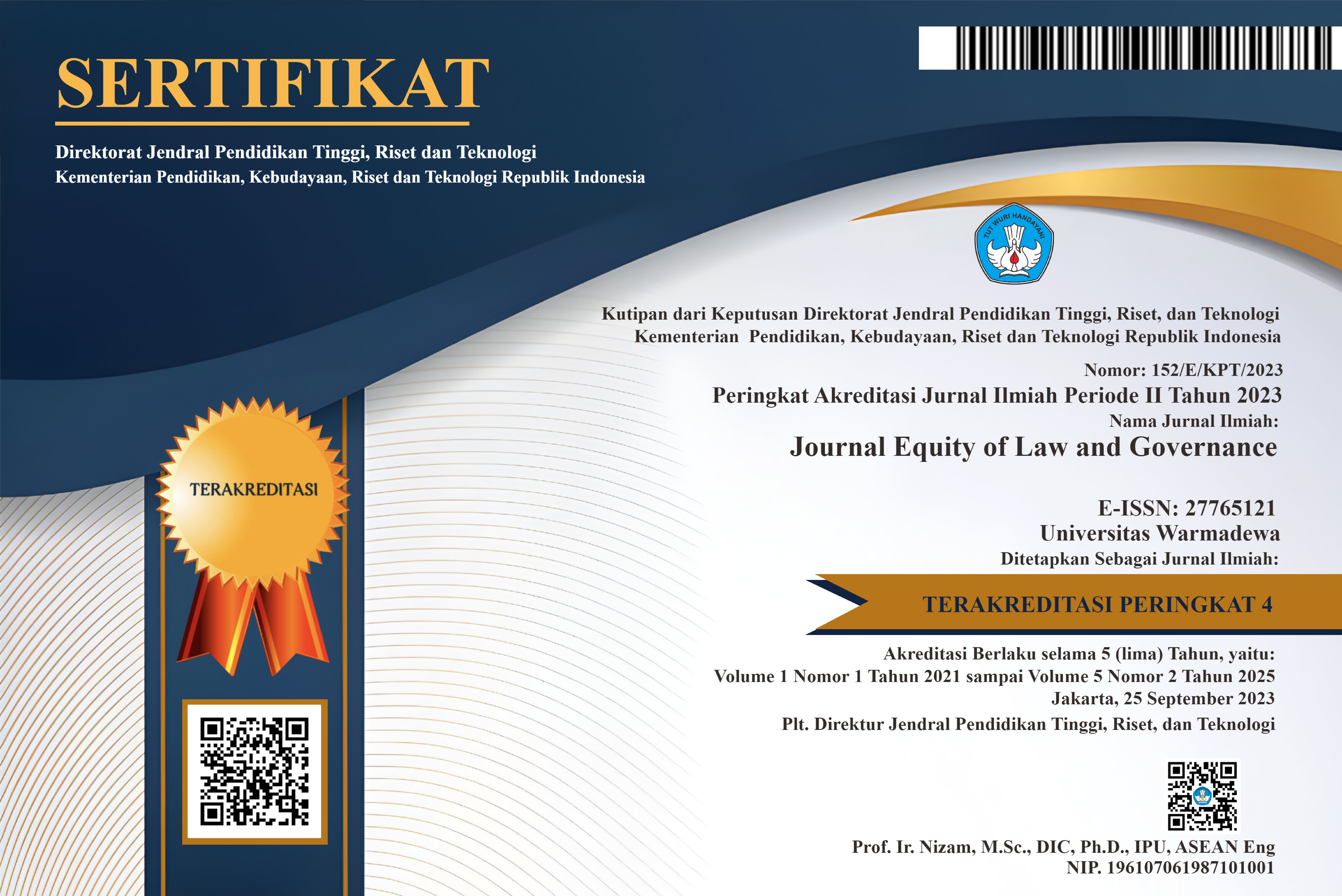Settlement of Default of Muzara’ah Contract of Rice Farmers in Sigama Village, Padang Bolak District, Padang Lawas Utara Regency Dsn-Mui Perspective No. 85/Dsn-Mui/Xii/2012”
Abstract
One of the towns in the Padang Bolak District of the North Padang Lawas Regency, Sigama Village, has extensive agricultural land which is used for rice fields, making farming the main source of income for the local community. But not everyone in the hamlet has agricultural land due to middle to lower class economic factors. Then, the muzara'ah system is one way for people in the area to prioritize mutual cooperation. Muzara'ah is a form of collective agreement between land owners and cultivators for the management of agricultural land, with the parties sharing the results according to their agreement. But the reality in the field is not in accordance with the agreement made between the land owner and the cultivator, where the agreement usually occurs in villages with a profit-sharing system of 70% for the land owner and 30% for the cultivator, with seeds. and fertilizer produced by land owners. In this research, descriptive approach techniques were combined with qualitative methods. Land owners and cultivators are the subjects of this research. Primary and secondary data are used in the data collection process. Meanwhile, secondary data was obtained from previous research, while primary data was obtained through interviews, documentation and observations. Then, the cultivator made a mistake which resulted in the contract being canceled. Then, after long negotiations, none of the parties can reach an agreement, then the dispute is resolved through an institution based on sharia if one party does not reach an agreement. through deliberation.
References
Anto, M. H. (2003). Introduction to Islamic Microeconomics, cet. 1. Yoyakarta: Ekonisia.
E. Suhandi, &. Z. (2016). Muzara'ah and the Welfare of the East Luwu Community. Muamalah Journal, VI(1).
Fauziah, F. (2024). efault in an Agreement (Verbintenis) According to Civil Law (Bw). Alqalam, 10(54).
Ghazaly, A. (2016). Fiqih Muamalah.
Hasan, M. A. (2003). Various Types of Transactions. Jakarta: PT. Rajagrafindo Persada.
Idris. (2000). Introduction to Civil Law and Several Aspects of Commercial Law. Pekanbaru: UIR Press.
Istanto, S. (2014). International Law Volume 2.
M., R. M. (2016). Muzara'ah (Farming Agreement). Samudra Hukum Law Journal.
Mannan, M. A. (1997). Islamic Economics Theory and Practice, Trans. M. Nastangin, "Theory and Practice of Islamic Economics". Yogyakarta: PT. Waqf Bhakti Fund.
Marzuki, P. M. (2011). Legal Research. Jakarta: Kencana Prenada Media Group.
N.A., S. &. (2024). Default and its consequences in implementing the agreement. . journal. universitassuryadarma.
N.A., S. N. (2024). Default and its consequences in implementing the agreement.
Roby, M. (2018). Muzara'ah Law According to As-Syirazi and Ibnu Quddamah [North Sumatra State Islamic University].
S.Z, S. E. (2016). Muzara'ah and the Welfare of the East Luwu Community. Muamalah Journal, VI(1).
Soegeng R., R. D. (2024). N. Profit Sharing System of Muzara'ah Agreements in the Community of Cultivator Farmers and Land Owners in Kel. Batupapan, District. Makale, Kab. Tana Toraj. ndonesian Journal of Business Analytics (IJBA) , 263.
State Gazette, testimony of Joy Kusna in. (2024).
Subekti. (2005). Contract Law. Jakarta: Inter Masa .
Sulaiman, R. (1998). Fiqih Islam, cet. 32. Bandung: PT. Sinar Baru Algensindo.
Tondi. (2024, May 12). Head of Sigama Village, Interview.
Dahlan, A. (2024, May 21). Agricultural Land Owner, Interview.
Kartina. (2024, July 5). The Role of Agricultural Product Sharing Between Cultivators and Land Owners in Increasing Community Income and Income in Bone Village, Bajeng District, Gowa Regency.
 Abstract viewed = 9 times
Abstract viewed = 9 times
 pdf downloaded = 18 times
pdf downloaded = 18 times













